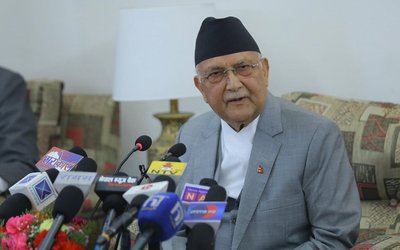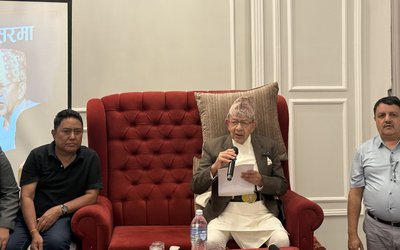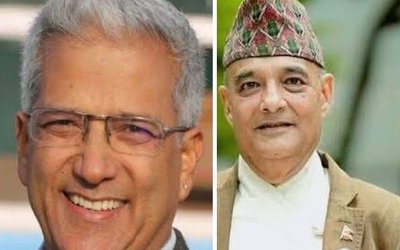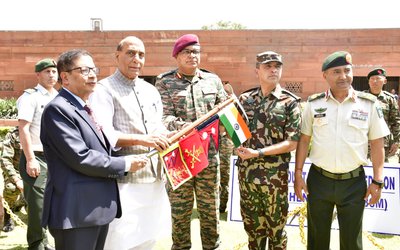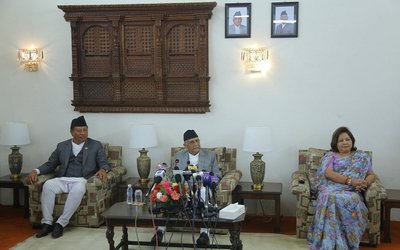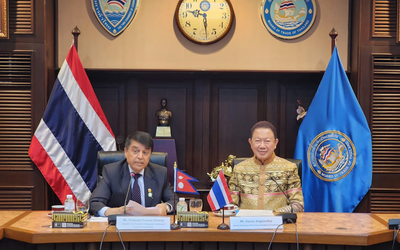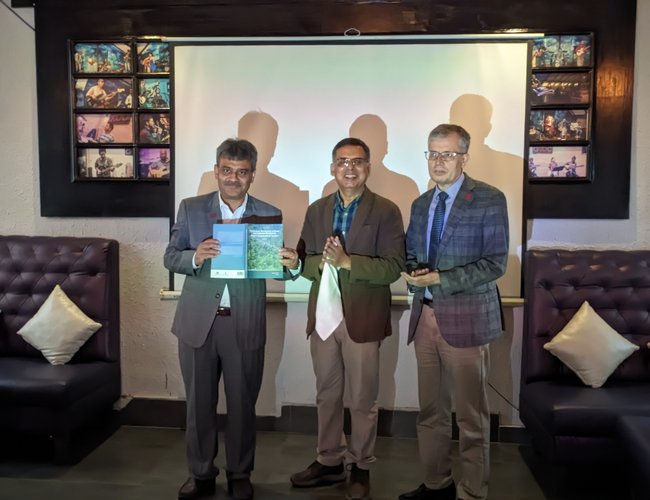
A book titled Federalism, Devolution of Power, and Inclusive Democracy: Nepal's Constitutional Context (Volume 1) was officially launched today in Kathmandu, drawing participation from academics, scholars, civil society members, and key stakeholders in Nepal’s federalization process.
Professor BholaThapa, Vice Chancellor of Kathmandu University, formally launching the book, lauded KUSOL’s proactive role in engaging with and contributing to the nation’s ongoing federalization process. He emphasized the relevance of such academic initiatives in shaping national discourse on federalism, particularly in the context of Nepal’s 2015 Constitution.
According to Professor Thapa, "although Nepal has adopted a federal system of governance for a short period, the effective implementation of this system requires significant contributions from experts, scholars, and stakeholders across various sectors. To make federal governance more inclusive and people-centric, it seems necessary to have deeper discussions on the challenges, opportunities, and practical aspects related to federalism.It can be said that the International Conference on Federalism, Devolution of Power and Inclusive Democracy in Nepal and Asia that the School of Law organized in recent past and the resulting book from it are steps taken in that very direction."
Edited by Professor BipinAdhikari, the book compiles revised papers and proceedings from the two-day international conference organized by the Kathmandu University School of Law (KUSOL) in November 2023. The conference was held with the support of the Australian Embassy and The Asia Foundation.
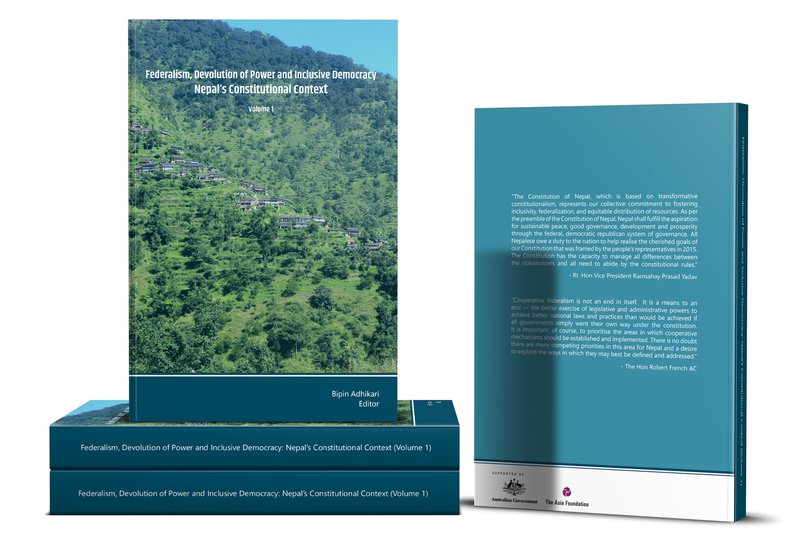
Welcoming the participants, Dean of KUSOL, Professor Dr. RishikeshWagle, expressed gratitude to all contributors and participants who had engaged in the rigorous academic discussions that led to the publication. Registrar Professor AchyutWagle provided insights into the major themes of the book, focusing on fiscal federalism, a topic of crucial importance in ensuring effective decentralization and local governance in Nepal.
Professor Ekkumaya Pun, Acting Dean of the School of Arts, highlighted the importance of the book for marginalized and deprived communities, noting that the publication underscores the need for inclusive democratic practices within Nepal’s federal structure. Her remarks focused on how the federal model must address historical inequalities while ensuring equitable representation at all levels.
Senior Advocate Dinesh Tripathi offered his legal perspective on the newly released book, commending its detailed exploration of constitutional and governance issues. He also appreciated some of the papers included in the book.
ParshuramUpadhyay, Senior Governance Advisor at The Asia Foundation, also addressed the gathering. He spoke on the significance of fostering discussions around federalism and inclusion, themes that align with the commitments enshrined in Nepal’s Constitution. Upadhyay emphasized The Asia Foundation's dedication to supporting initiatives that enhance dialogue on governance reforms, furthering democratic practices, and promoting inclusivity in Nepal.
The attendees hailed the book as a critical resource for academics, policymakers, and practitioners navigating Nepal’s evolving federal system.
- Ram Nawami Festival 2025: Importance And Significant
- Apr 06, 2025
- Weather Forecast: Mainly Fair In Madhesh, Karnali, Lumbini, Sudur Paschim and Plains Of Koshi Provinces
- Apr 06, 2025
- My Visit To India Not Possible Due To Lack Of Time: PM Oli
- Apr 05, 2025
- There will be an impartial investigation into the Tinkune incident, judicial investigation may not be necessary: Prime Minister
- Apr 05, 2025
- RPP Leader Pashupati Sumsher Rana Demands Unconditional Release of Rabindra Mishra and Dhawal Rana
- Apr 05, 2025
